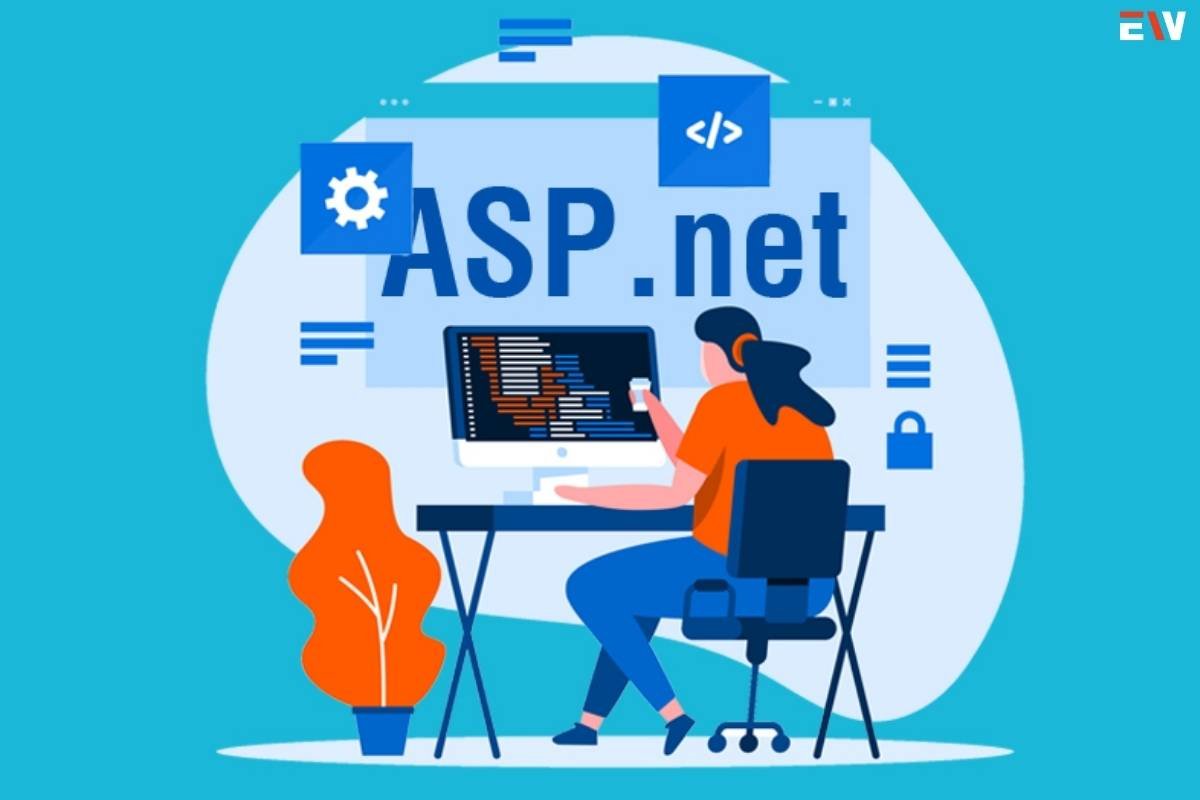In the rapidly evolving digital landscape, establishing a robust online presence is imperative for small businesses. The choice of a development framework plays a pivotal role in shaping the success of your website. Two widely used options, ASP.NET vs. PHP, offer distinct advantages and considerations.
Here are some small business website development tips for ASP.NET vs. PHP:
1. ASP.NET vs. PHP: Foundations of Choice
Before delving into tips and best practices, it’s crucial to grasp the fundamentals of ASP.NET vs. PHP.
ASP.NET, developed by Microsoft, is a versatile and robust framework that integrates seamlessly with Microsoft technologies. It’s important to note that ASP.NET supports various programming languages, including C# and VB.NET, providing flexibility for developers.
On the other hand, PHP is an open-source scripting language known for its flexibility and compatibility with various databases and platforms. It is often chosen for its simplicity and ease of integration, making it an excellent choice for small businesses that prioritize a quick development cycle.
2. Define Your Small Business Needs

Defining your small business needs is not a one-size-fits-all approach. Consider the nature of your business, the specific features your website demands, and your long-term scalability expectations. If your small business involves extensive data processing and integration with Microsoft tools, ASP.NET might be the preferred choice. Conversely, if you value open-source flexibility and compatibility with various platforms, PHP could be the optimal solution.
3. Development Speed: PHP’s Rapid Iteration Advantage
When it comes to the speed of development, PHP is renowned for its rapid iteration capabilities. The language’s syntax is straightforward, allowing developers to write and deploy code quickly. This characteristic is particularly beneficial for small businesses aiming to launch their websites promptly or iterate on features in response to changing market demands.
PHP’s community-driven development and vast repository of libraries and frameworks further contribute to its efficiency. Developers can leverage existing solutions, reducing the need to build everything from scratch.
4. Integrated Development Environment (IDE) Advantages with ASP.NET
One of the standout features of ASP.NET vs. PHP is its integration with Visual Studio, Microsoft’s powerful Integrated Development Environment (IDE). Visual Studio offers a comprehensive set of tools, including code completion, debugging, and performance analysis. This integrated approach enhances the development process, providing developers with a robust environment to create, test, and deploy applications efficiently.
Developers working with ASP.NET in Visual Studio can take advantage of features like IntelliSense, which offers intelligent code completion suggestions, speeding up the coding process. This is particularly beneficial for small businesses aiming for a polished and error-free website.
5. Cost Implications: PHP’s Open-Source Affordability
Cost considerations are pivotal for small businesses, especially those in the early stages of development. PHP’s open-source nature eliminates licensing fees, making it an attractive and cost-effective choice. This affordability extends to hosting solutions, as many web hosting providers support PHP at minimal costs.
On the other hand, while ASP.NET offers powerful features, it may involve licensing costs associated with Microsoft products. Small businesses need to carefully assess their budget constraints and weigh the long-term cost implications when choosing between these two frameworks.
6. Scalability: Future-Proofing with ASP.NET

Scalability is a crucial factor for small businesses with aspirations for growth. ASP.NET is often considered more scalable, especially for large-scale applications and enterprise-level solutions. The framework’s association with Microsoft’s enterprise ecosystem provides small businesses with the assurance that their website can seamlessly scale to accommodate increasing traffic and complex functionality.
Small businesses should carefully assess their growth projections and choose a technology that aligns with their long-term scalability needs. Investing in a scalable solution from the outset can prevent the need for a major overhaul as the business expands.
7. Community Support and Documentation for Both
ASP.NET vs. PHP, both of these boast active and vibrant communities. These communities provide valuable support through forums, tutorials, and extensive documentation. The availability of resources is a crucial factor during the development process, especially for small businesses with limited in-house expertise.
PHP’s community-driven development has resulted in a plethora of online resources and a vast ecosystem of plugins and extensions. This can be advantageous for small businesses seeking cost-effective solutions and quick troubleshooting.
ASP.NET’s community is equally robust, with dedicated forums and extensive documentation. Developers working with ASP.NET can tap into Microsoft’s resources, accessing official documentation and expert guidance. This is particularly valuable for small businesses aiming for a high level of technical precision in their website development.
8. Security Considerations: ASP.NET’s Enterprise-Level Focus
Security is non-negotiable, especially for small businesses handling sensitive customer data. ASP.NET, with its focus on enterprise-level security features, offers a robust and secure environment for web development. The framework incorporates security measures such as built-in authentication and authorization mechanisms, protecting against common vulnerabilities.
While PHP is secure when configured correctly, small businesses using this framework should implement additional security measures. This may include regular security audits, adherence to best practices, and staying informed about the latest security updates within the PHP community.
9. Integration with Third-Party Tools: Compatibility Matters
Small businesses often rely on third-party tools and services to enhance the functionality of their websites. The seamless integration of a chosen framework with these tools is crucial for a streamlined and efficient operation.
When it comes to ASP.NET vs. PHP, both have extensive support for integration with third-party tools. Small businesses should evaluate the compatibility of each technology with essential tools such as payment gateways, analytics platforms, and customer relationship management (CRM) systems. Ensuring smooth integration can save time and resources during development and future updates.
10. PHP’s Affordability in Shared Hosting Environments
For many small businesses, shared hosting is an economical solution for hosting their websites. PHP’s compatibility and affordability make it well-suited for shared hosting environments. Shared hosting plans that support PHP are widely available, offering small businesses a cost-effective option for hosting their websites.
PHP’s lightweight nature and efficient resource usage make it a practical choice for businesses with budget constraints. Small businesses can benefit from the cost savings associated with shared hosting plans while still achieving reliable performance.
11. ASP.NET and Windows Server Hosting Benefits
Consideration of the existing technology infrastructure is vital when choosing a development framework. If a small business is already invested in a Windows server environment, ASP.NET may offer better integration and performance on this platform. The compatibility between ASP.NET and Windows Server can streamline the hosting and deployment process, ensuring optimal performance.
Small businesses should assess their current technology stack and infrastructure to determine how well each framework aligns with their existing systems. A cohesive technology environment can lead to a more efficient development process and better overall performance.
12. Personalization Needs: Tailoring Experiences for Success

Personalization is a growing trend in online experiences, and businesses of all sizes can benefit from tailoring their websites to meet the unique preferences of their audience. Both ASP.NET vs. PHP can accommodate personalized features, but the implementation may vary.
ASP.NET, with its strong focus on enterprise-level solutions, may offer more extensive support for complex personalization features. Developers working with ASP.NET can leverage the framework’s capabilities to create customized user experiences, such as personalized content recommendations and dynamic interfaces.
PHP, being flexible and open-source, allows developers to implement personalized features through various libraries and frameworks. Small businesses should evaluate their specific personalization needs and how each framework supports tailoring experiences for their audience.
Conclusion: Informed Decision-Making for Small Business Success
In conclusion, the choice between ASP.NET vs. PHP for small business website development involves a nuanced evaluation of your business needs, development speed requirements, cost considerations, scalability goals, and the existing technology landscape. Both technologies have their merits, and the right choice depends on your unique business context.
By defining your priorities and carefully considering the expanded factors outlined above, you can embark on a small business website development journey that aligns seamlessly with your goals. Whether you lean towards the Microsoft-backed power of ASP.NET or the open-source flexibility of PHP, make an informed decision that propels your small business to digital success.
Incorporate these tips into your decision-making process, and your small business website development project will be well-positioned for success in the competitive online landscape. Stay attuned to emerging trends, leverage community support, and continually optimize your website to meet the evolving needs of your audience.










